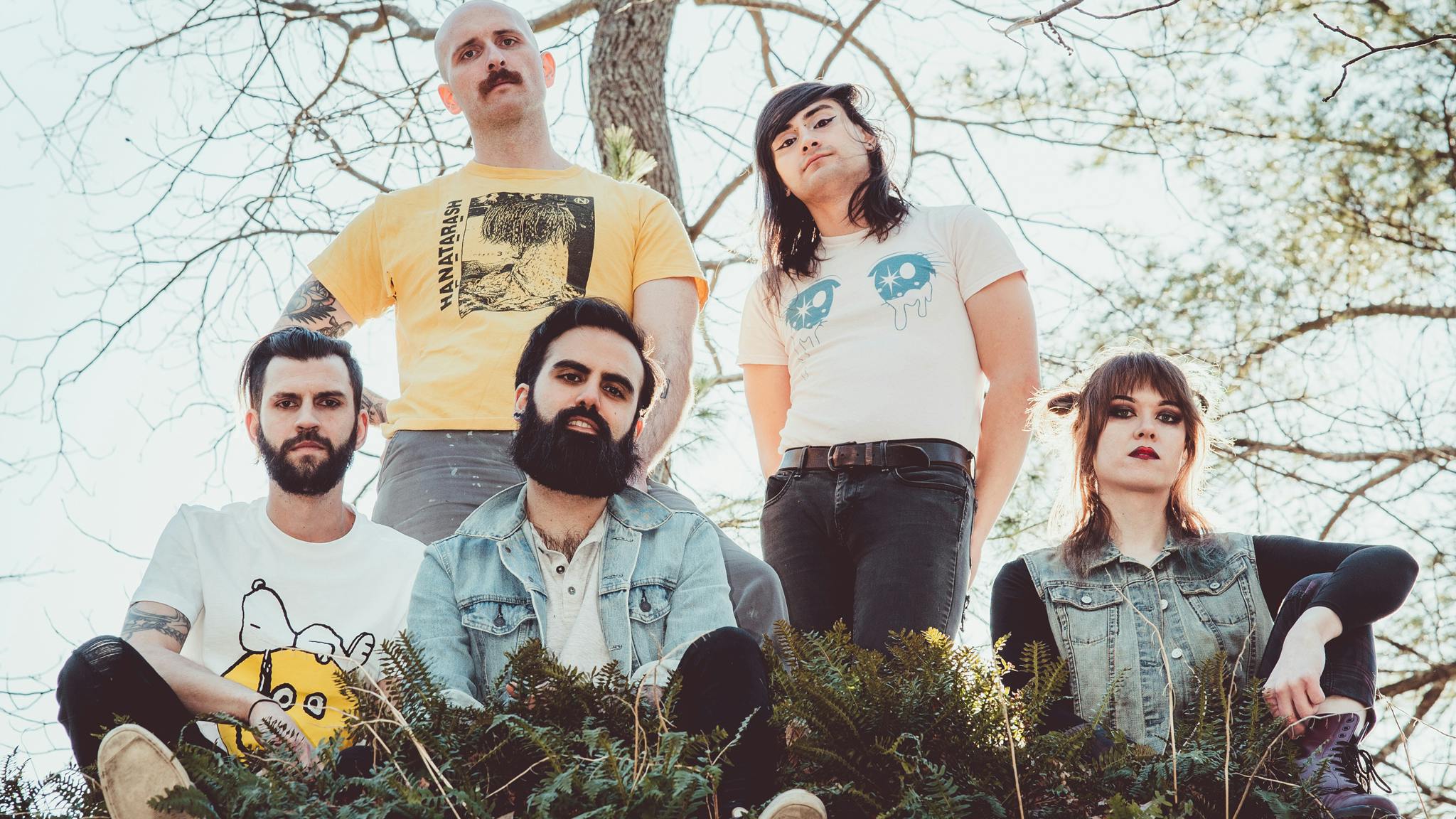Last summer Dreamwell – completed by guitarist Ryan Couitt, bassist Justin Soares and drummer Anthony Montalbano – had six weeks to finish the final six songs, putting in 10-to-12-hour days in the rehearsal space every Sunday before leaving for a tour where the new material was road-tested as an addendum to pre-production. “We were sitting in the van reviewing the pre-pro every day, taking notes while we’re driving to the next city we were playing in,” Aki says.
“We wouldn’t have wanted to play those songs quite as much as we did on that tour, but it was like, ‘We straight-up need to practice this so we’re ready when we go on to the studio.’ Anyone who came to that tour got the chance to see us play a lot of songs we haven’t played live since then.”
The next stage in the journey took them to the Noise Floor in New Hampshire, where over a two-month period they worked with returning producer Ryan Stack to bring the mayhem to life in an appropriately visceral way. In My Saddest Dreams, I Am Beside You is home to performances that are punishingly intense, from the blastbeats that break open its first song, Good Reasons To Freeze To Death, to the skin-peeling Botch-esque guitar carnage of Body Fountain. “It was extremely exhausting,” Aki recalls, noting that she only recovered from a sprained finger in time to record her parts because she got COVID and had to delay anyway.
“We were doing two or three days for each of the instruments, eight-to-10-hour days. I’m a recording engineer, but I’ve never really liked the stress of having to worry about playing my parts, writing my parts and also recording the entire band [in Dreamwell]. I think outside input is really valuable, but as an engineer, I’m very harsh on myself when recording.”
“For the record,” KZ counters. “I ate a box of doughnuts and then recorded all my tracks in three hours. So, the process was really easy for me.”
